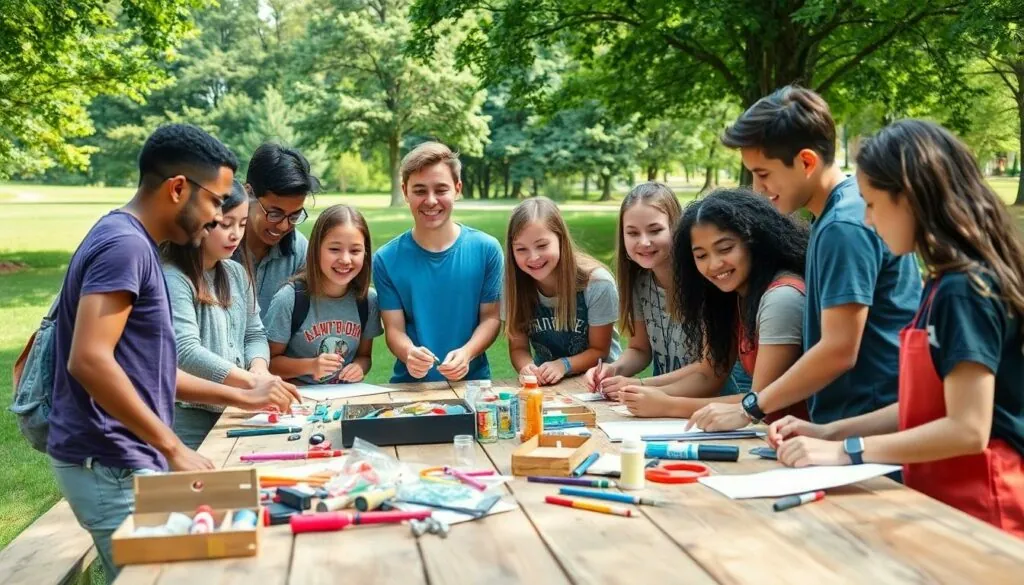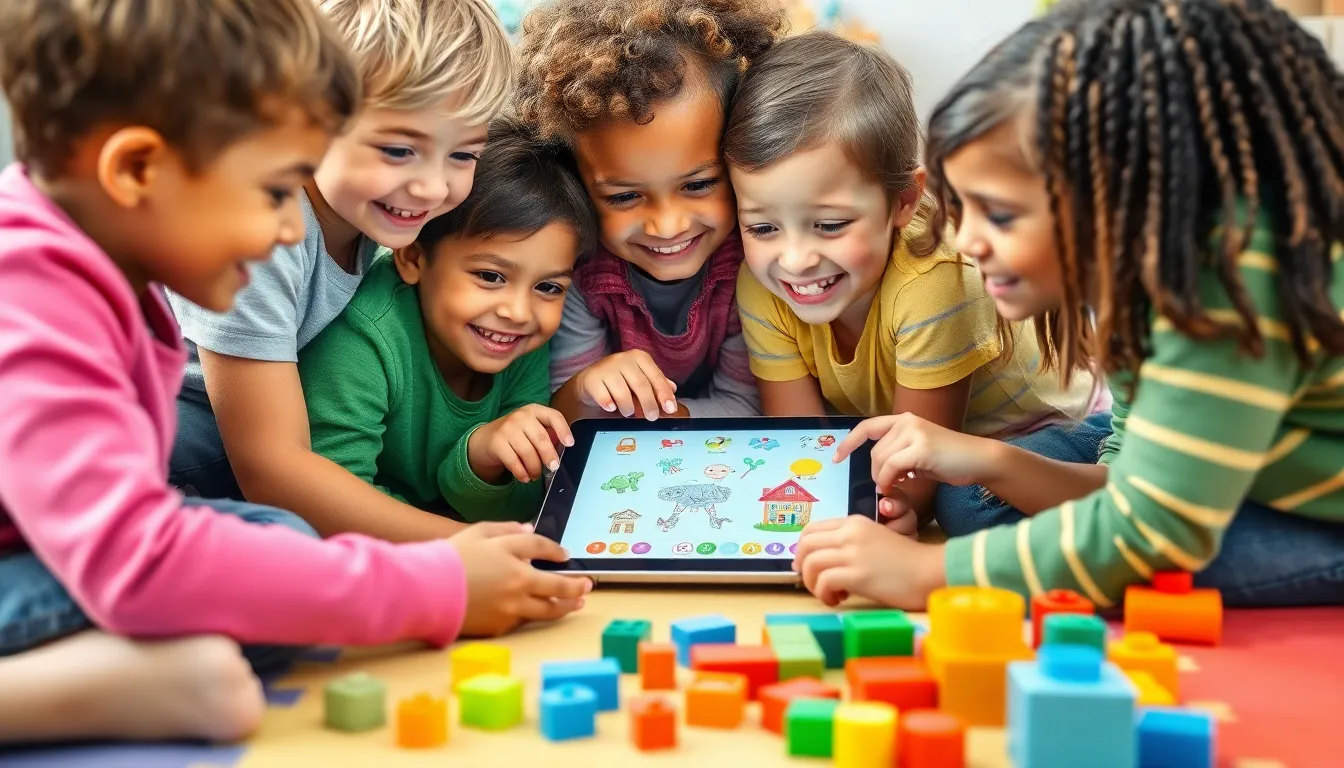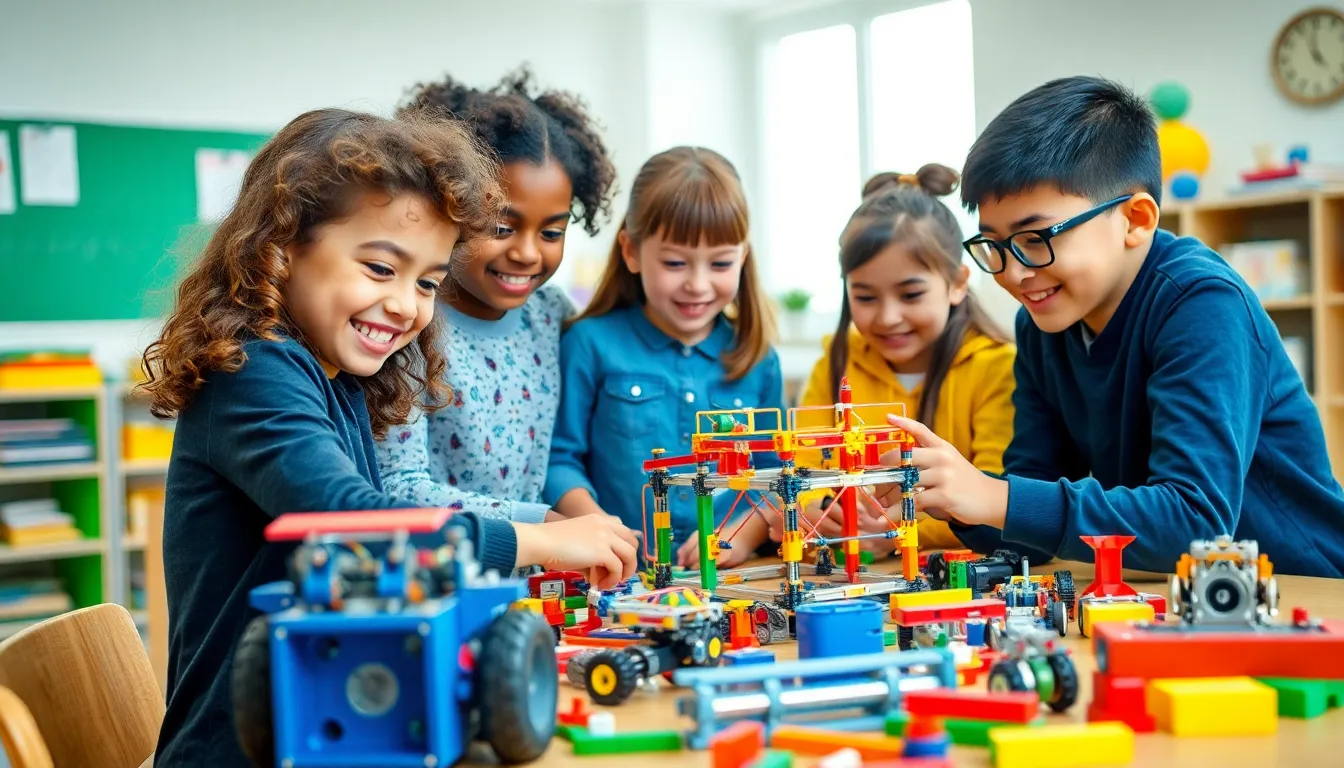In a world where traditional classrooms can feel like a never-ending episode of a boring sitcom, alternative education programs step in like the quirky best friend who knows how to turn things around. These innovative approaches to learning offer students a chance to break free from the confines of conventional education and explore their passions in a more engaging way.
Table of Contents
ToggleOverview of Alternative Education Programs
Alternative education programs offer diverse educational choices outside the traditional classroom setting. These programs cater to various learning styles and needs, emphasizing flexibility and creativity in curriculum design.
Students often thrive in environments that allow for experiential learning, fostering deeper understanding and retention. Project-based learning initiatives engage learners through hands-on experiences, encouraging collaboration and critical thinking.
Additionally, online education platforms provide access to resources for those who prefer self-paced learning. These programs can include interactive lessons, multimedia resources, and community forums to support a well-rounded educational experience.
Specialized programs focus on individual interests, whether in the arts, sciences, or vocational training. Such options address the unique talents of each learner, providing robust pathways for personal and professional development.
According to the National Center for Education Statistics, about 3% of students in the U.S. participate in alternative education settings. These statistics underscore the growing demand for alternatives to conventional methods, highlighting their relevance in today’s educational landscape.
Programs also emphasize social-emotional learning, ensuring students develop essential skills like empathy and resilience. Incorporating a holistic approach prepares students not just academically but also socially and emotionally for the complexities of modern life.
Investing in alternative education can create pathways for students who may struggle in traditional environments, allowing them to flourish and succeed on their own terms.
Types of Alternative Education Programs

Alternative education programs offer diverse approaches to learning, catering to various student needs and interests. Below are several prominent types of these programs.
Montessori Education
Montessori education emphasizes self-directed learning, allowing students to explore subjects at their own pace. Classrooms typically feature mixed-age groups, promoting peer learning and collaboration. Materials used in Montessori settings are designed to be hands-on, fostering independence and critical thinking skills. Teachers act as guides rather than traditional instructors, supporting each child’s unique developmental path. The approach nurtures a love for learning while encouraging personal responsibility and social awareness.
Waldorf Education
Waldorf education integrates arts and academics, focusing on holistic development. Students engage in creative activities alongside traditional subjects, which enhances imagination and emotional intelligence. Nature plays a significant role in the curriculum, with students participating in outdoor activities and environmental studies. Teachers usually stay with the same class for several years, fostering stability and deep relationships. Emphasizing experiential learning, this approach promotes collaboration, community involvement, and a strong sense of social responsibility.
Unschooled Education
Unschooled education prioritizes learner-led interests, allowing students to guide their educational journey. Freedom to pursue individual passions results in a personalized learning experience. Parents often facilitate, ensuring access to resources and opportunities while respecting children’s autonomy. The approach values life experiences as pivotal learning moments, emphasizing real-world skills over standardized testing. Unschooled students typically develop strong problem-solving abilities and adaptability, preparing them for future challenges.
Benefits of Alternative Education Programs
Alternative education programs offer multiple advantages that cater to diverse student needs.
Personalized Learning
Personalized learning approaches tailor education to individual student strengths and interests. Each learner engages with a customized curriculum that aligns with their unique goals. Flexibility enables adjustments in pace and style, which prove vital for students with varied learning preferences. Research indicates that students experience increased motivation and success when education aligns with their personal passions.
Development of Critical Thinking
Critical thinking skills develop effectively within alternative education settings. Students tackle real-world problems through project-based learning and hands-on activities. This method encourages inquiry and exploration, allowing learners to cultivate analytical skills. Emphasis on creativity and collaboration further enhances their ability to think critically and solve complex issues. These skills remain crucial for navigating today’s fast-paced world.
Improved Student Engagement
Student engagement thrives in alternative education programs, which prioritize interactive and immersive experiences. Students participate actively in their learning, resulting in increased enthusiasm for school. Learning environments promote collaboration with peers, encouraging teamwork and mutual respect. As a result, students form strong connections with their education, leading to improved attendance and achievement. Engaged learners often demonstrate higher retention rates and a genuine passion for knowledge.
Challenges Facing Alternative Education Programs
Alternative education programs encounter several challenges impacting their effectiveness and growth. Perception and acceptance from the broader community often influence their viability.
Perception and Acceptance
Alternative education programs face skepticism regarding their quality compared to traditional schooling. Misunderstandings about their methodologies frequently lead to negative perceptions. Some families prioritize conventional education paths, viewing alternative options as inferior. Enhancing communication about their benefits can improve awareness. Efforts to showcase success stories can demonstrate their effectiveness. Eventually, increased visibility may foster acceptance among educators and parents.
Funding and Resources
Funding remains a significant challenge for many alternative education programs. Limited financial resources often constrain program development and sustainability. State and federal funding typically prioritizes traditional schools, leaving alternative settings under-resourced. Many rely on grants and donations to operate effectively. Budget constraints can limit access to qualified staff and educational materials, impacting overall quality. Advocating for increased funding and resources can support growth in these programs, allowing them to reach more students.
Alternative education programs represent a vital shift in how students engage with learning. By prioritizing flexibility creativity and personalized experiences these programs cater to diverse needs and learning styles. They empower students to explore their interests while developing essential life skills.
As the demand for alternative education options grows it’s crucial to address the challenges these programs face. Increased awareness funding and community support will enhance their viability and success. Embracing these innovative approaches can lead to a more inclusive educational landscape where every student has the opportunity to thrive.






